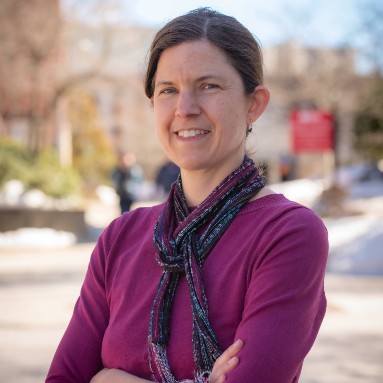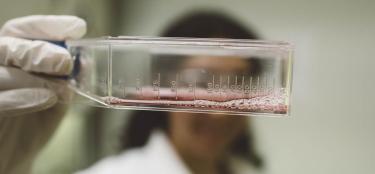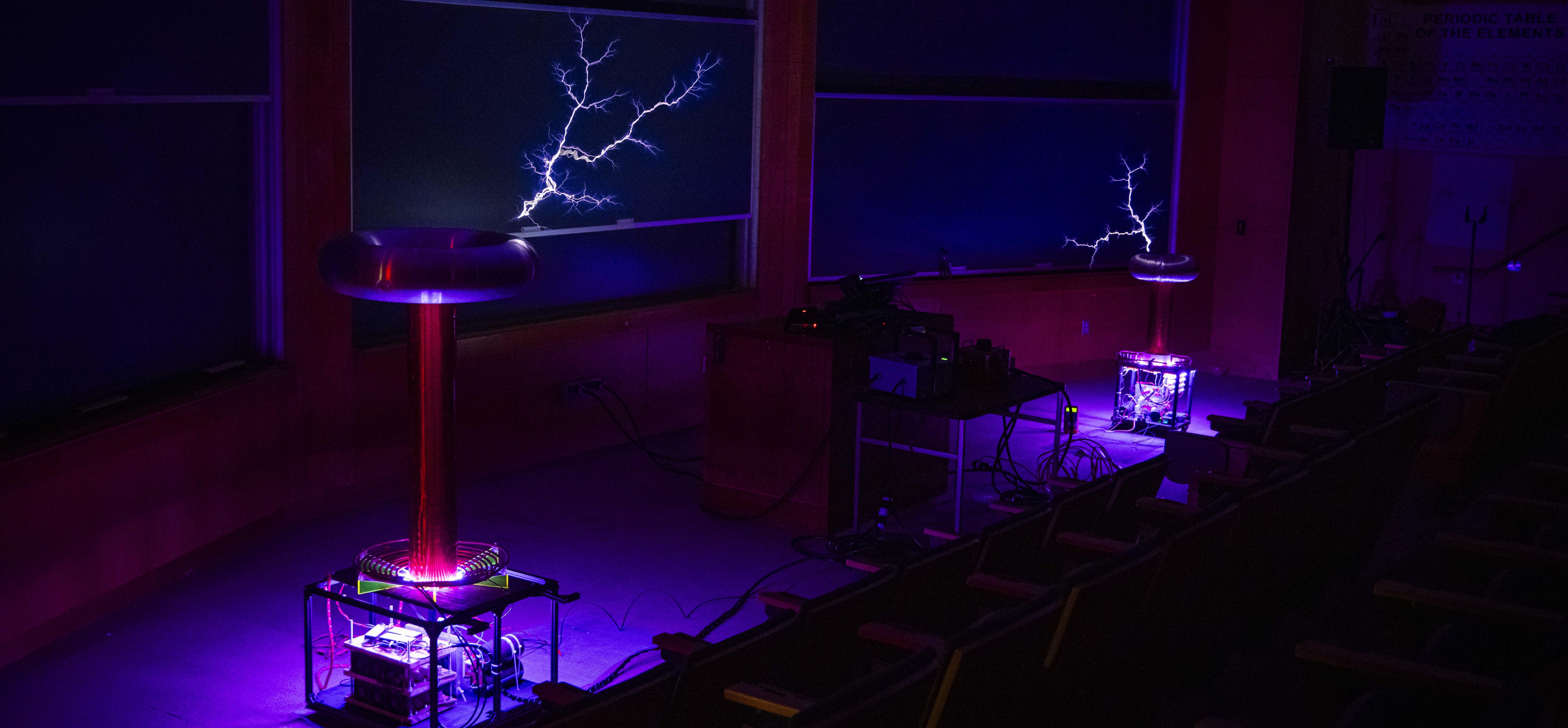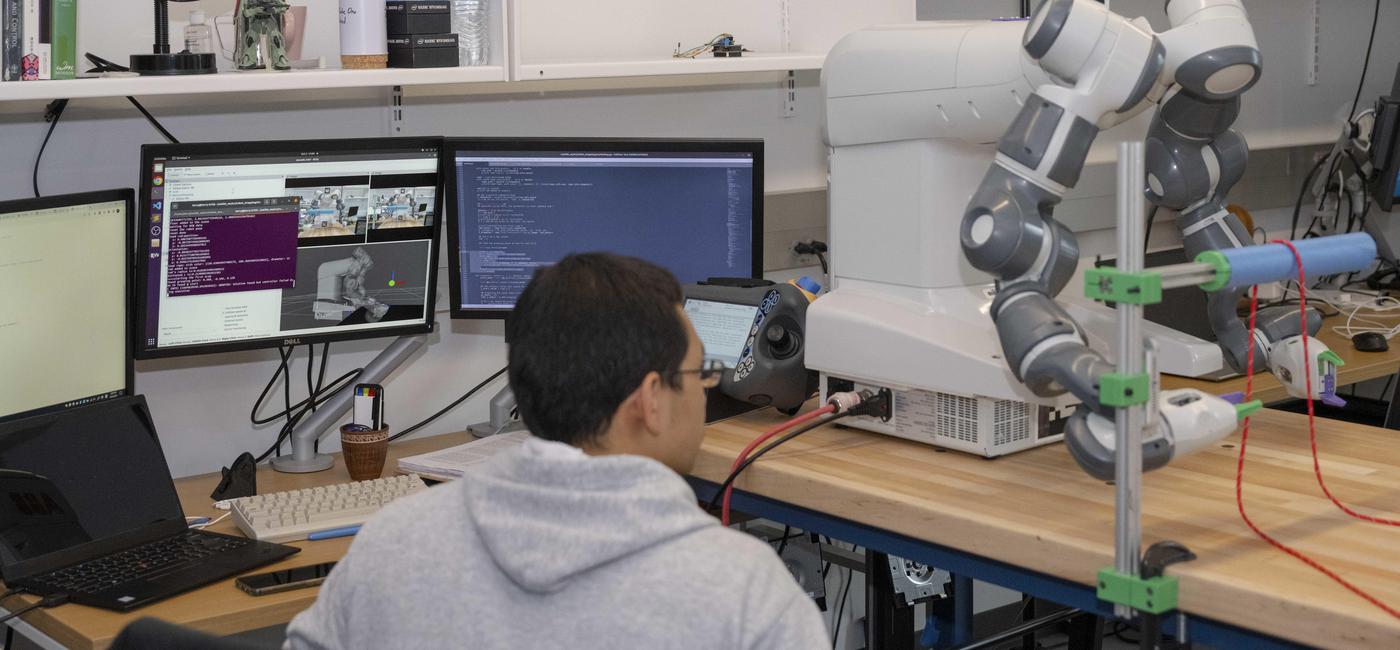WPI’s master’s in Biomedical Engineering lets you tailor your studies so you can delve deeply into the groundbreaking research that helps you make advances in healthcare. Working on project-centered studies and collaborative research opportunities, you’ll apply engineering concepts to medicine and biology in ways that challenge and excite you.
With extensive resources to support research, and in a region rich with biomedical industries, you’ll have the chance to partner with renowned faculty, peers, and local companies to solve real-world problems. You’ll graduate with original technical and scientific work so you can move into career paths as varied as law, nursing, and medical school.

Biomedical Engineering: Career Outcomes
What does a career in Biomedical Engineering look like? Browse WPI and national data to learn more about companies who have hired WPI graduate, average salaries, job outlook, and more.
In small classes, research groups, and collaborative labs, students in the master’s in Biomedical Engineering program have the advantages of combining WPI’s long history in engineering excellence with our commitment to advanced investments in the life sciences.
With our rigorous but flexible curriculum, you’ll be positioned to apply traditional engineering concepts and foundations in constantly evolving fields, such as healthcare. Requirements include course work in biomedical engineering, life sciences, advanced mathematics, multidisciplinary electives, a graduate seminar, and a thesis.
Research projects in our cutting-edge laboratories are diverse—from biomedical sensors and instrumentation to cardiovascular tissue engineering.
Exploring biomedical engineering master’s programs that challenge you to delve deep into innovative and groundbreaking research? WPI’s biomedical engineering facilities invite in-depth and innovative research in a close-knit, open lab environment, but in a location at the center of the region’s booming biomedical industry. Explore our diverse biomedical engineering research where faculty challenge students to forge ahead in innovative and collaborative lab environments.
The Life Sciences & Bioengineering Center at Gateway Park offers dedicated research labs and teaching facilities that provide the latest equipment and faculty expertise available.

Being on the leading edge of research advances means you’ll think like a scientist, an engineer, an entrepreneur—all with technology in the forefront.

Research laboratories at WPI’s Life Sciences & Bioengineering Center at Gateway Park include a 124,600-square-foot space. These labs focus on non-invasive biomedical instrumentation design, signal processing, tissue biomechanics, biomaterials synthesis and characterization, myocardial regeneration, cell and molecular engineering, regenerative biosciences, and tissue engineering.

Classroom knowledge is applied directly to real-world problems as faculty and students work side-by-side in labs, always striving for the next innovation in regenerative medicine, drug discoveries, tissue remodeling, medical imaging, or physiological monitoring.

Successful collaborations with industry partners and significant funding for major research means our faculty and students have the resources to make discoveries that impact areas such as biomaterials and tissue engineering, biomechanics and mechanobiology, and bioinstrumentation and signal processing.
Graduate Studies Series
Team members from Graduate & Professional Studies host quick and convenient webinars designed to highlight popular topics when starting grad school. Take a deep dive into specific areas of interest such as how to secure funding, how to ace your application, an overview of student services, and more!
Faculty Profiles







Have questions?
WPI's dedicated graduate student support team can help.
Refer a Friend
Do you have a friend, colleague, or family member who might be interested in a WPI graduate program? Click below to tell them about our programs.
Interested in Earning a Master of Engineering Instead?
If you’re interested in a course-based curriculum with an engineering focus, our master of engineering in biomedical engineering may be a great fit. This biomedical engineering master’s program will give you the engineering expertise needed to push the envelope in the industry. The coursework combines biomedical engineering, mathematics, life sciences, and your choice of electives.
Browse More Engineering Grad Programs
Maybe you’re interested in combining computer science with electrical engineering? Our flexible master’s in ECE covers computer science, robotics, systems, mathematics, and even physics, all tailored to your individual interests. Are you more of a problem solver who enjoys being on the brink of innovation and problem-solving? Our master’s in mechanical engineering combines biomechanical engineering with areas like manufacturing, dynamics and control, and more. Do you have a passion for pushing the boundaries of what is possible as it relates to the medical field? Consider our master’s in robotics engineering and learn how to develop robotic medical instruments that elevate healthcare.
Already Have a Biomedical Engineering Masters? Explore a PhD.
Maybe you have a MS in biomedical engineering and are looking to lead breakthrough research that combines engineering with biomedical disciplines? Our PhD in biomedical engineering delves into advanced, cutting-edge research alongside world-renowned WPI faculty. WPI’s mechanical engineering PhD gives you a different focus as you research biomedical robots or medical imaging. Or you can follow your passion to improve medical diagnostic equipment and wearable sensors with a PhD in electrical & computer engineering. If you are an ambitious engineer looking to push the boundaries of what’s possible, be sure to check these out.
Just Starting Your Career and Need a Bachelor’s in Biomedical Engineering First?
Whether you’re just starting to browse colleges or are hard set on the exciting biomedical industry, you have come to the right place. Our bachelor’s in biomedical engineering covers a range of engineering disciplines including biology, medicine, and health. If you enjoy concept-to-prototype and working on cutting-edge research projects, this is the path for you. We have several concentrations available as well in areas like mechanobiology, bioinstrumentation and biosignal processing, and more.


